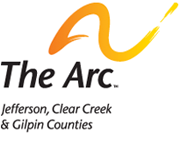Higher Education
Please note the page/ website you’re currently using has replaced Jeffcotag.org as of August 14, 2020.
Why college? Many families never think about college as a viable option for their young adult with disabilities. On the other hand, many of our youth want to give it a try. And that’s the key.
In this session you will hear just how accessible and real the college experience can be for youth with disabilities. There are different college models that can be successful. We hope that by watching this video, you will see it can truly be a choice.
Attending college often provides benefits beyond the possibility of earning a certificate or degree. Young adults of all abilities can use this opportunity to learn about themselves, to make friends, and to achieve a level of independence they never experienced in high school.
Students with disabilities have access to labs and tutoring services, to meet needs not addressed in the classroom. Other accommodations include note-takers, recorded classes, use of assistive technology and extended test timing. Each college offers programs to meet individual needs.
But unlike high school, students’ needs are no longer addressed through an Individual Education Program, or IEP. Instead, the student must initiate contact with the college disability accommodations office to access available services.
Parents should remember that their college-aged child is now an adult and it is his or her responsibility to communicate with professors. In addition, grades are reported only to the student. A parent’s role shifts from being the primary contact for the young adult, to that of supporter, or mentor.
There are many different places that offer higher education and certifications. Vocational schools, apprenticeships, community colleges and universities are all potential options to look into and consider.
Presentations and Handouts:
Local Resources:
It is possible to be successful in a college or a vocational school provided the student understands their disability and learning style and what kind of support the school will offer. This means the student must know their own strengths and weaknesses, accomplishments and failures, career goals and personal values. In general, post-secondary schools will provide reasonable accommodations but will not modify course content or expectations for students with disabilities. This includes expectations of student behavior.
When it comes to higher education, local resources are at a state level or national level. Higher education institutions in Jefferson County are a part of the Colorado higher education system. There are two community colleges located within Jefferson County:
Return to Main Page
This content was created by the Jeffco Transition Alliance Group (or TAG). TAG was a collaboration among The Arc – Jefferson, Clear Creek & Gilpin Counties, the Developmental Disabilities Resource Center (DDRC) and Jeffco Public Schools. In partnership and with grant funding from DDRC, a series of family-focused trainings were delivered in past school years to equip students and their families in navigating a successful transition in their Life After High School. Due to family and community feedback the information was converted to self-guided learning.

